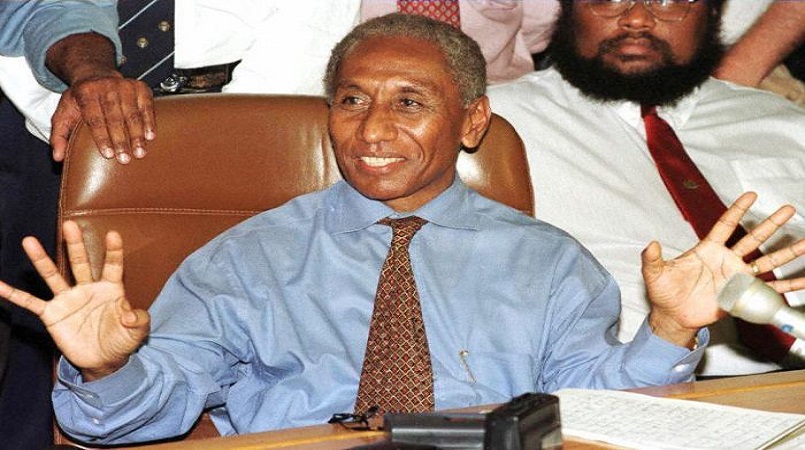
Former prime minister Sir Julius Chan says that if he had been allowed to continue with the infamous Sandline operation to put down the Bougainville civil war in 1997, he would have been able to bring the island under control.
In his newly released autobiography, Sir Julius has revealed details about his harsh words with then prime minister John Howard over the hiring of Sandline mercenaries, and how he blamed the Australian media for inflaming opinion in PNG.
"I attended a private lunch with prime minister John Howard at Kirribilli House in Sydney shortly after the engagement of Sandline was revealed," wrote Sir Julius in the book, Playing the Game: Life and Politics in PNG.
"His attitude was 'Just get rid of these people. They should not be there.' He did not give me any reason for it.
"I told Howard to stay out of the affair, mind his own business and not to interfere with the decision of my government. 'We are an independent country,' I said.
"It could have been that Australia's attitude in this matter was linked to an interest in not wanting to see foreign influences in Papua New Guinea other than themselves."
Sir Julius said that the heavy militarisation could have also been seen as a threat to another near neighbour of both countries — Indonesia.
"We were now dealing with people who were bringing in the kind of armoury that Papua New Guineans had never had before," he wrote.
"Perhaps they were concerned that all of a sudden we might think that we had the firepower to deal with illegal border crossings on our western side [PNG's border with Indonesia]. Perhaps Australia did not want the possibility of a war with Indonesia."
Speaking to Pacific Beat, Sir Julius said his views on engaging Sandline to break the civil war had not changed.
"I'm told that maybe 17,000 people were killed. An election was coming up, and I thought I was the man," he said.
"When I asked Australia for help, Australia wouldn't. They stopped all the helicopter assistance, took them away, so I needed to get some engagement of some people that were experienced.
"I thought the way to bring the whole thing under control, to show that the government has the firepower to resolve this issue, was to just identify an empty house or something [in the village of Guava, atop the Panguna copper mine] and fire some guns or something — to just destroy it — enough to psychologically tell the people that it's time for peace."
